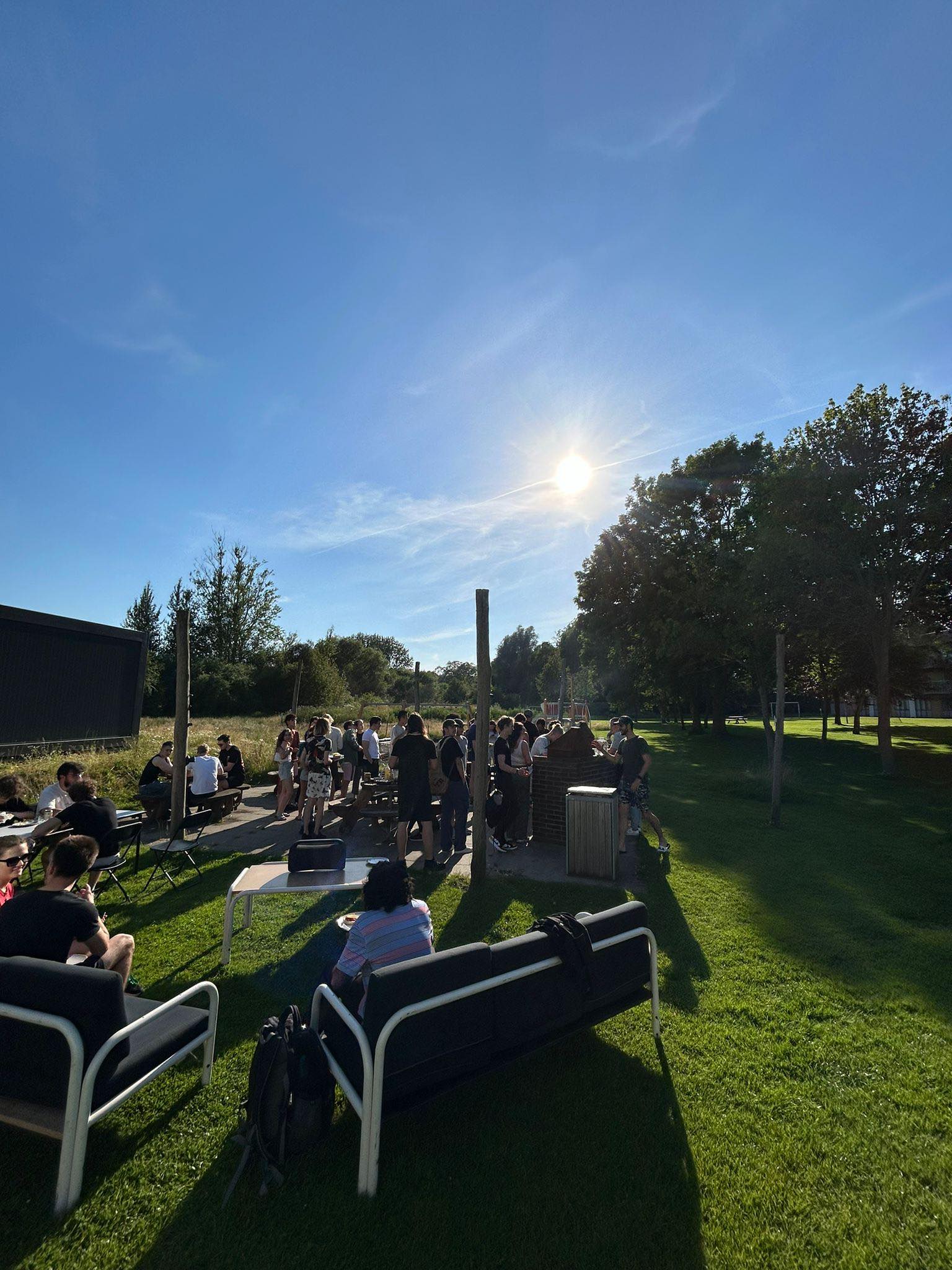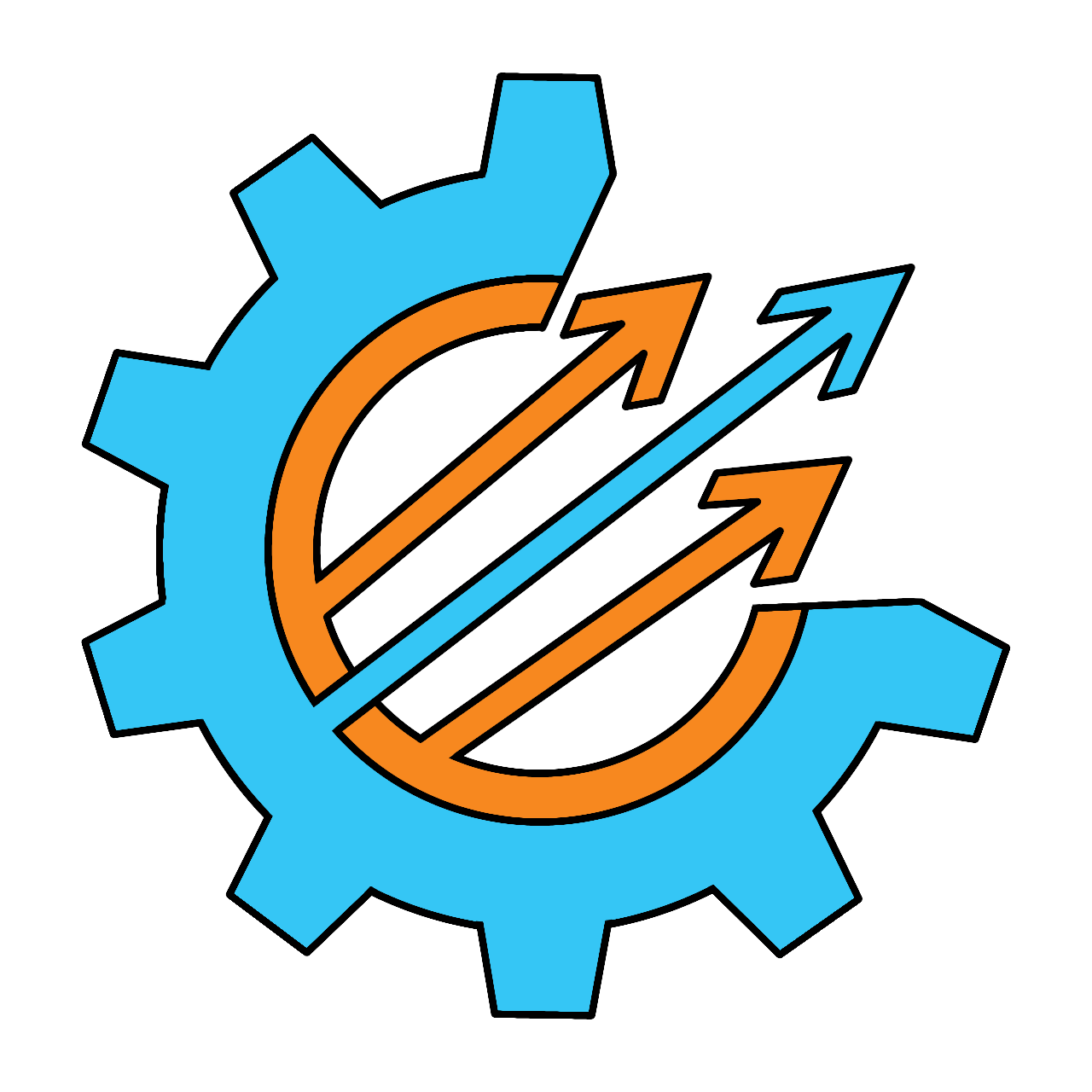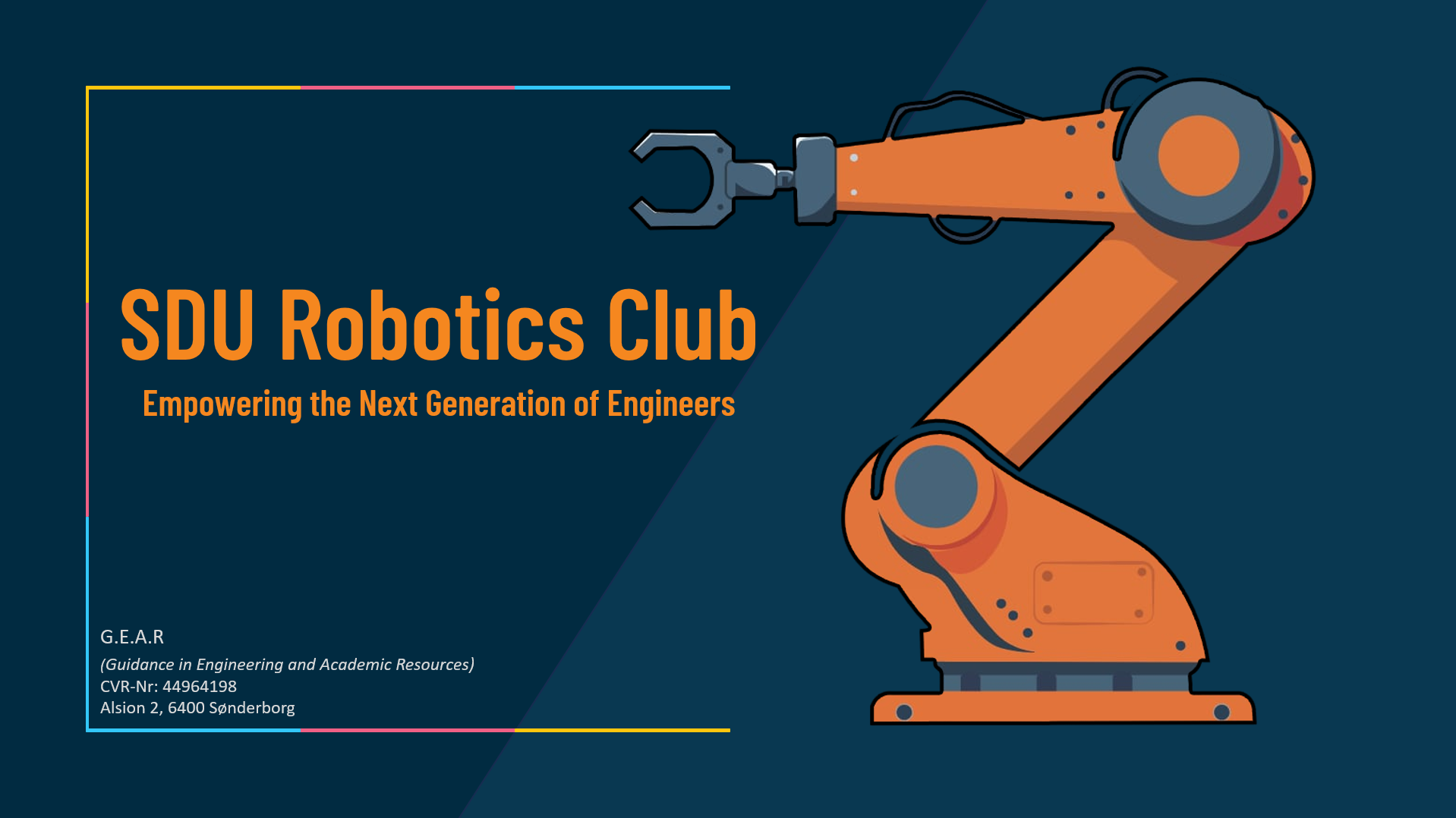
Meet the Team
Driving Innovation & Excellence
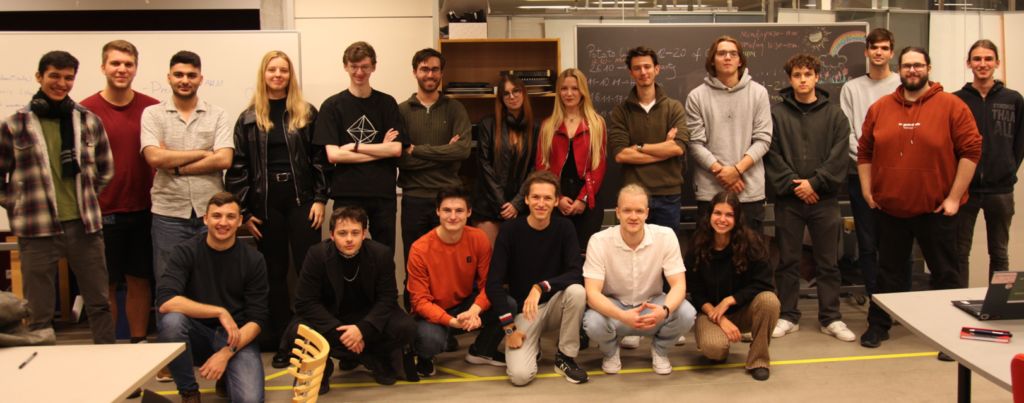
Mission and Vision
Our mission at the Robotics Club is to lead innovation and education in robotics. We started the 1st Robotics Club at SDU with the aim to foster a collaborative environment where students can develop hands-on skills, work on cutting-edge projects, and prepare for leadership roles in the robotics industry. Our vision is to become a driving force for the next generation of engineers and technologists, advancing not just individual careers but the field of robotics as a whole.
Team Introduction
Our team consists of passionate and talented individuals from engineering, computer science, and design. In our very first recruitment round, we had over 100 applicants, demonstrating the tremendous interest and enthusiasm for robotics on campus. Our team has since grown to include some of the brightest minds at SDU, all working together to innovate and create.
Board Members
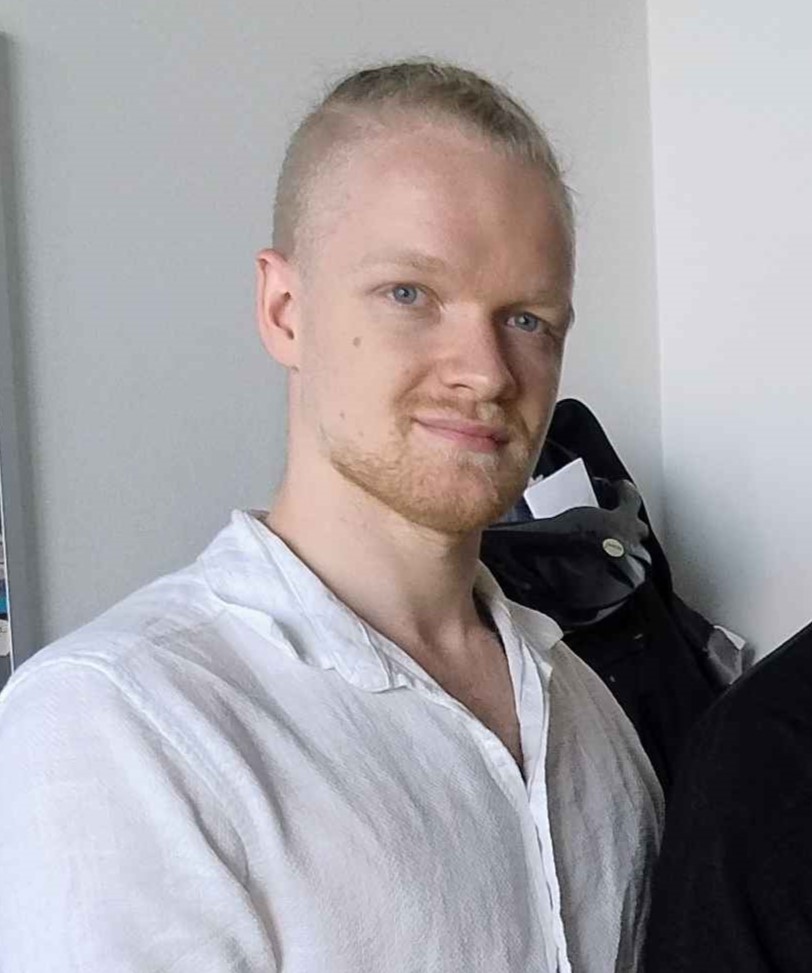
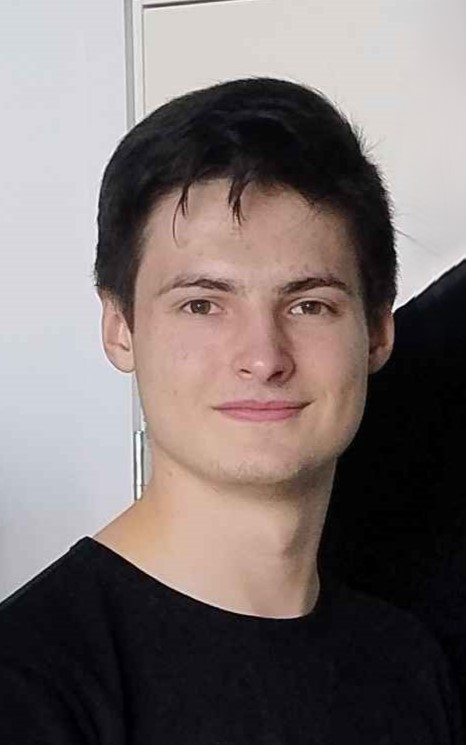
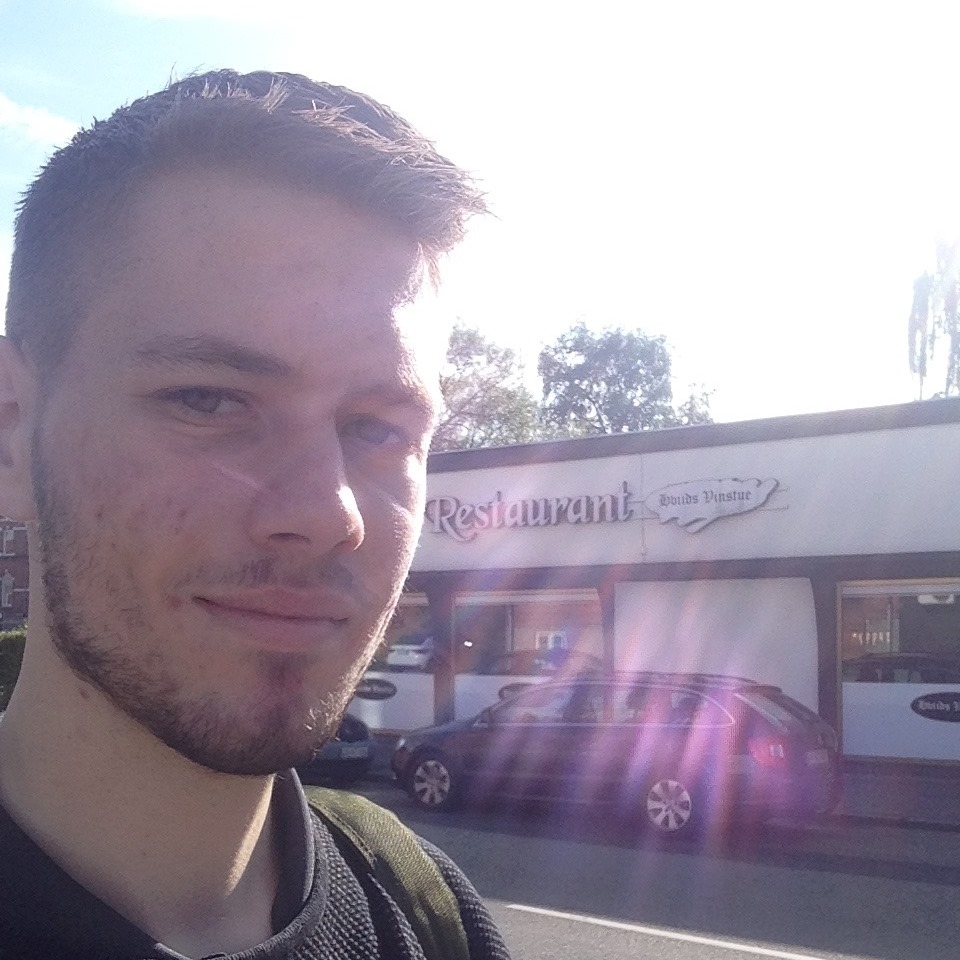




Projects
Hexapod Robot

The Hexapod Robot began as an ambitious semester project at Syddansk Universitet (SDU), with the goal of exploring advanced robotics design and engineering.
Built from scratch by a dedicated team of students, the project showcased not only the technical capabilities of our students but also their ability to innovate and push the boundaries of robotics.

Robotic Arm: Precision Engineering for Automation
Our Robotic Arm project at SDU Robotics Club is a testament to precision engineering and advanced automation technology. Designed as a versatile tool for tasks requiring high accuracy and control, this robotic arm is built to handle everything from delicate object manipulation to repetitive industrial operations. It integrates state-of-the-art sensors and actuators, allowing for smooth and precise movements.
The project serves as a platform for students to gain hands-on experience in robotics, mechanical design, and programming. Our goal is to refine the robotic arm’s capabilities and explore its applications in industries such as manufacturing, automation, and research.
Micromouse: Pioneering Autonomous Navigation
The Micromouse project at SDU Robotics Club showcases our team’s expertise in autonomous systems and algorithm development. Designed to compete in international micromouse competitions, this small but sophisticated robot navigates complex mazes using advanced sensors and real-time decision-making algorithms.
The project pushes the boundaries of robotics by challenging students to develop efficient pathfinding, obstacle detection, and AI-powered navigation. Our goal is not only to succeed in competitions but also to explore real-world applications for autonomous navigation technology, from warehouse automation to smart vehicles.

Future Plans and Vision
Global Competition Participation
At SDU Robotics Club, we are committed to showcasing our innovations on the world stage. Our goal is to actively participate in global robotics competitions, such as the Micromouse International Challenge and other prestigious robotics contests. These competitions offer a unique platform to test our skills, compare our innovations with leading teams, and gain exposure in the international robotics community.
Competing globally allows our members to push their technical expertise to new levels, develop cutting-edge robots, and experience firsthand the excitement and pressure of real-world problem-solving. Through participation in these competitions, we aim to place SDU Robotics Club on the map as a hub of excellence in robotics, attracting global recognition for both our team and our university.
Company Project Collaboration
Collaboration with industry leaders is key to driving our projects forward and ensuring they are relevant to current market demands. SDU Robotics Club is actively pursuing partnerships with companies in the robotics, automation, and tech sectors to work on collaborative projects. These projects provide mutual benefits: companies gain access to fresh, innovative ideas and a pipeline of talented future engineers, while our students gain valuable industry experience and mentorship from professionals.
Whether it’s developing automation solutions, prototyping new robotic technologies, or testing the latest AI systems, our collaborations bridge the gap between academia and industry, preparing our students for impactful careers while driving innovation for our partners.
Next-Gen Technology Development
At SDU Robotics Club, we are constantly exploring the future of robotics by developing next-generation technologies that can solve real-world problems. Our focus is on pushing the boundaries in areas such as autonomous navigation, human-robot interaction, and machine learning for robotics applications.
From advanced robotics arms designed for precision automation to autonomous micromouse robots capable of real-time problem-solving, our projects are at the forefront of technological advancement. We believe that these innovations will play a crucial role in sectors like healthcare, logistics, and industrial automation. Our team is passionate about exploring the latest technologies, building prototypes, and applying our solutions in meaningful ways to improve industries and communities.
Expanding Student Engagement
One of our primary goals at SDU Robotics Club is to broaden student involvement and foster a vibrant community of innovators. Since our founding, we have seen a surge of interest, with over 100 applicants in our first recruitment round. Moving forward, we plan to expand student engagement by offering hands-on workshops, mentorship programs, and interdisciplinary collaboration opportunities.
We are creating avenues for students from all disciplines, including engineering, computer science, and even business, to contribute to and benefit from robotics projects. Through outreach efforts, such as hosting on-campus events, competitions, and partnering with local schools, we also aim to inspire younger students to pursue careers in robotics and STEM fields. By building a diverse and inclusive community, we will ensure that SDU Robotics Club remains a driving force for student innovation and learning.
Sponsors and Partnerships


